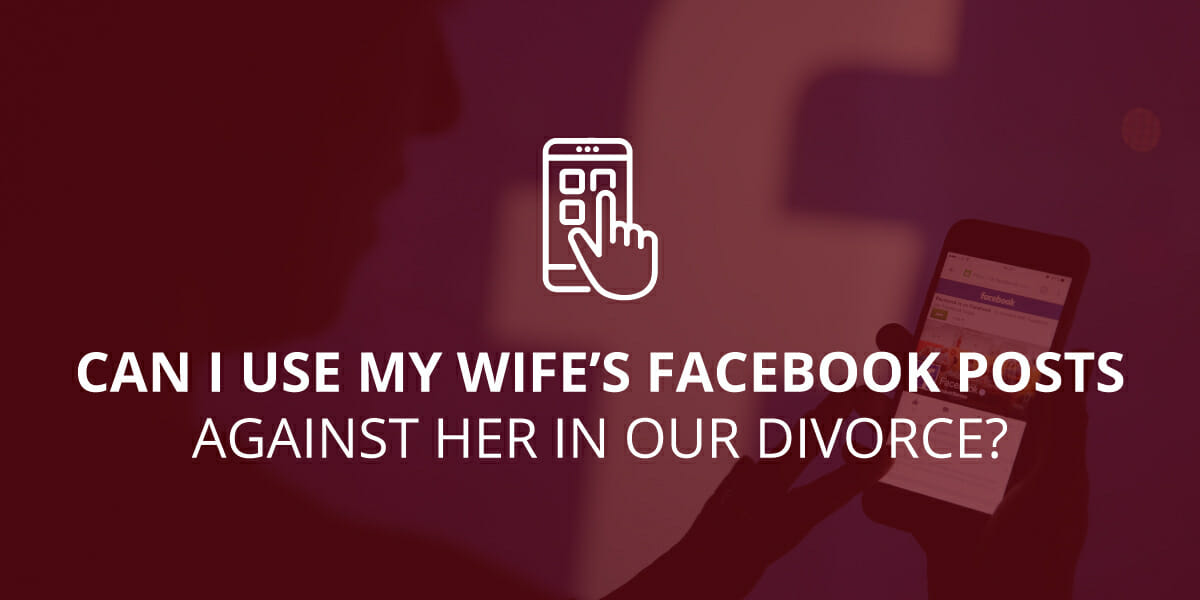
Your wife has always been active on social media, and all indications are that she will not be slowing down during your divorce. So, can you track your wife’s social media posts during your divorce? If you can, should you? Are there ways that you can use her Facebook and other social media posts to gain an advantage during the divorce process?
Accessing Your Wife’s Social Media Posts During Your Divorce
As long as you are not logging into your wife’s social media accounts against her wishes, if you can access her posts, they are fair game in your divorce (even if she has blocked you or set her account to “private,” you may still have options to gain access to her posts through legal means during your divorce). This is true whether you are a “friend” or “follower” online, or you have friends who have access to your wife’s public social media profiles. If you can access your wife’s social media accounts, the fact that you (or she) filed for divorce does not change anything in this regard.
Of course, some men may find it disturbing to follow their wives’ social media postings or dig through their profile histories – particularly if the divorce is contentious or if their wife has committed adultery. If you prefer, your attorney can read your wife’s posts and examine her photos on your behalf.
Using Your Wife’s Social Media Posts During Your Divorce
So, your wife has been posting on social media, and you want to know if you can use her posts against her. It is a possibility, and this is absolutely something you should discuss with your divorce attorney. Here are a few examples of how you may be able to take advantage of your wife’s social media posts during your divorce:
Scenario #1: Your Wife Cheated on You
Since New Jersey is a “no-fault” divorce state, the fact that your wife cheated on you probably will not change much with regard to the formalities of your divorce. However, her adultery could still be relevant in certain respects, particularly if she used joint assets to finance her affair. If your wife (or anyone else) posted information or photos online which confirm that she cheated, you may be able to use the posts against her.
Scenario #2: Your Wife is Lying to Get Custody
If your wife travels regularly for work, goes out every Saturday (or Thursday) night, or has an alcohol or drug problem, these are all factors that could potentially impact the determination of child custody. If she is trying to hide this information during your divorce, you may be able to use her social media posts to prove that she is lying.
Scenario #3: Your Wife is Hiding Assets or Income
Similarly, if your wife is claiming to have limited assets or income but posting about lavish trips or luxury purchases online, you may be able to use her social media posts to demonstrate that she is hiding assets during your divorce. This can be relevant to the calculation of child support and alimony as well as the distribution of your marital estate.
To be clear, you should only bring up your wife’s social media posts within the context of the formal proceedings of your divorce. You should not confront her directly, and you certainly should not respond or attempt to “retaliate” online. If your wife’s social media posts are relevant, there will be a time and place to use them. As with all aspects of the divorce process, this is a complicated matter with a variety of legal implications, and you need to make smart decisions based on the advice of your attorney.
Speak with New Jersey Divorce and Men’s Rights Attorney Carrie S. Schultz
If you are ready to get divorced, the attorneys at MR. Men’s Rights Divorce & Family Law of New Jersey by Schultz & Associates, LLC are here to help. To get started with a confidential initial case evaluation, please call 201-654-4263 or inquire online today.



